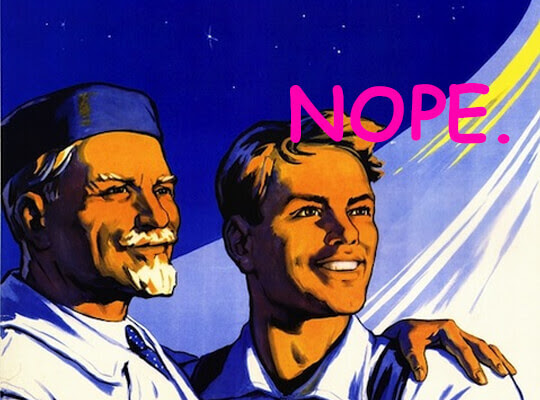Welcome to Sidekick by Kickresume — your trusty companion to all things career (that won’t bore you to death).This time about why getting things done is often painful.
Why productivity systems don’t stick? Blame your defense mechanisms
Productivity systems come with a promise: “There’s a trick to productivity!” If only you can trick your brain into doing these few simple things, you’ll be able to wave procrastination goodbye.
But whether it’s bullet journaling, the Pomodoro technique, Eat That Frog, or you name it, these systems rarely stick. After a brief period of moderate success, most people return to their old procrastinating self.
Why is that?
According to Matt Goldenberg’s well thought out post on lesswrong.com, it’s because we try to trick our insanely adaptable minds into productivity without understanding why we procrastinate in the first place.
See, the most basic, coffee table magazine sort of explanation would be something like “We procrastinate to avoid negative emotions.”
In other words, procrastination is a defense mechanism against taking actions that hurt us psychologically. You could even say that procrastination is a tool to prevent psychological self-harm. You wouldn’t be entirely wrong.
Now, the problem with productivity systems is that procrastination is smart. It’s like a virus. It can adapt to new circumstances.
Before you know it, you're procrastinating from ever using that productivity tool again.
All of that because you failed to resolve that underlying negative emotion, like your need for autonomy (you hate being coerced into action), self-loathing (when you feel guilty enough to finally take action), value tension (you want to see yourself as hard-working but damn, deep down you just want to sit back and relax)…
But I’m going to stop there. Read the full post. Sure, it’s nothing revolutionary but if you’re anything like me, you might enjoy seeing things from a fresh perspective.
Also, if you’re not familiar with lesswrong.com, give it a try. They’ve managed to build one of the most interesting internet communities that I know of.
Read full post: Why Productivity Systems Don’t Stick by Matt Goldenberg (lesswrong.com)

Don’t set your goals based on what you want. Base them on what you DON’T want
Alright, then. Productivity systems don’t work because of some…negative emotions.
But what if you could use those negative emotions to propel yourself forward? I mean, it certainly feels like some people do.
Hear me out.
Once upon a time, there was this guy called Andrew Wilkinson. Despite his professional success, he was unhappy.
His calendar was packed with meetings, he was doing business with people he didn’t like, and the demands of his busy schedule were stressing him out.
Then he got a seemingly pretty underwhelming idea: “What if I could plan my life around avoiding the things I hate?” Turns out, he could.
First, he tried to imagine his worst possible day and worked backwards from there to set goals — or anti-goals — for avoiding this worst case scenario.
For instance, he hated days packed with long meetings. What would be the anti-goal for that? “Never schedule an in-person meeting when it can otherwise be accomplished via email or phone.” Problem solved.
In the end, Andrew says that this strategy made his life immeasurably better.
Yet again, this idea is far from revolutionary. But in the end, it’s amazing how much you can achieve by trying to be consistently not stupid, instead of trying to be very intelligent.
(Also, if procrastination is about avoiding negative emotions, does it mean that this strategy is basically procrastination? #philosoraptor)
Read full post: The Power of Anti-Goals by Andrew Wilkinson (medium.com)

What makes some people more productive than others (finally some hard data)
“Enough with these wishy-washy lifestyle articles! Who cares about anecdotes and random dudes on the internet? I need hard data.”
Fine, I hear you, random someone. You’re probably right. I’ve got something just for you, then.
Back in 2019, Harvard Business Review conducted a survey in which they asked people to assess their own personal productivity. In the end, 19,579 professionals took part in the survey.
(Also, I know that 2019 was still pre-COVID but some things never change, you know. Getting things done is still more or less the same.)
After cleaning up the data, three general patterns stood out:
- Working longer hours doesn’t necessarily mean accomplishing more.
- Older and more senior professionals scored better than their junior colleagues.
- Male and female professionals were almost the same in terms of productivity, but their habits were different.
What exactly did people with the highest productivity scores do differently, then?
First of all, they planned their work around their top priorities, and then acted with a definite objective. They were also able to manage high volume information and tasks. Interestingly, they also tried to make the lives of their colleagues easier — clear directions, short meetings, etc.
North American respondents ended up in the middle of the pack, even though they tend to work longer hours. They scored significantly lower than was the average in Europe, Asia, and Australia.
Also, women scored much higher than men when it came to running effective meetings. On the other hand, men did particularly well in coping with high message volume — they simply ignored the unimportant things.
But this newsletter is getting too long already. I’m going to leave the rest to you.
I had a blast reading this one. Read the full report here: What Makes Some People More Productive Than Others by Robert C. Pozen and Kevin Downey (HBR)
(SOMEWHAT) RELATED READS THAT YOU ALMOST MISSED
- Best Answers: Where Do You See Yourself in 5 Years [Job Interview]
- Job loss or setback left you feeling defeated? How to pull yourself up
- How to Find Remote Jobs Online: Where to Look, Who’s Hiring & How to Get One

YOU WON’T BELIEVE THIS CAREER ADVICE
Hear! Hear! Kickresume’s resident HR expert Christy Morgan is about to dispense useful cover letter advice.
- Why should you bother writing a cover letter?
“Firstly, it’s a traditional courtesy to send a cover letter with a resume. Secondly, they want to find out whether you’re a great fit for the role or why they should read your resume. And sometimes, they’re trying to get a hint of your personality. Cultural fit is important to many companies.”
- What should you research before you start writing a cover letter?
“First of all, focus on what type of jobs you’re applying for. Pick relevant jobs for which you’re qualified for and then it will be much easier for you to write a cover letter. Secondly, research the company and their tone of voice. Look at their website and you’ll get the idea. Then you should adjust your cover letter’s voice to it.”
- Can you get rejected if somebody else writes your cover letter for you?
“No, I’ve never heard of that happening. Unless it was such a huge difference between the resume and cover letter, it’s not generally such a big deal. It’s the resume content that counts.”
Need more tips? Check out the interview with our resident recruiter: Recruiter Reveals: Follow This Cover Letter Outline for Maximum Success.



